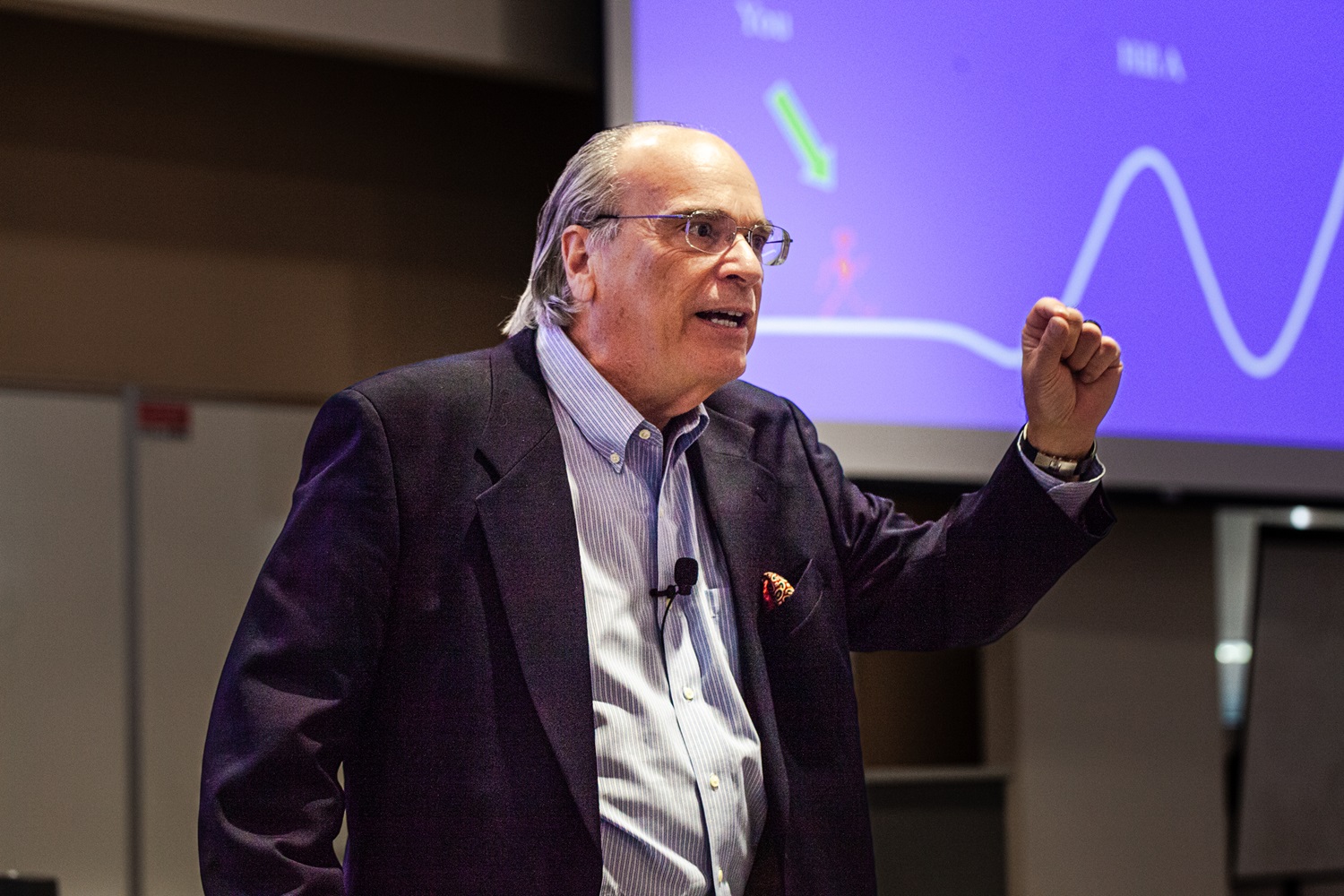Work in Progress: Puryear on Leibniz’s Idealism

In this article, Stephen Puryear, associate professor of philosophy, discusses his ongoing work on a book on Leibniz’s Idealism.
Consider the rainbow. It presents itself to us as a multi-colored arc in the sky. According to the usual view, however, that’s not what’s really there in the sky. What’s really there is a bunch of tiny droplets of water that refract and reflect the sunlight on its way to our eyes. That light enters our eyes and hits our retinas, setting off a chain reaction in our nervous systems that ultimately leads to the multi-colored appearance in our minds.
The distinction so nicely illustrated by this case, between appearance and reality, has fascinated philosophers since the early days of philosophy itself. Way back in the days when Socrates roamed the streets of Athens advocating the examined life, his contemporary Democritus took a bold (and many would say prescient) stand on the issue: “By convention sweet and by convention bitter, by convention hot, by convention cold, by convention color; but in reality atoms and void.” In other words, atoms and the space they occupy are real; everything else is appearance.
When he wasn’t discovering the calculus or making advances in physics, Gottfried Wilhelm Leibniz (1646–1716) devoted considerable energy to this issue. Like Democritus, he wrestled with the question of where to draw the line between appearance and reality. In the end he offered an even bolder answer. On his view, not only do “sensible qualities” such as tastes and colors fall on the side of appearance, but so does everything physical. The only thing that falls on the side of reality, he came to think, are what he famously called “monads”—that is, the immaterial entities among which are included human minds and an infinity of other mind-like substances that exhibit various levels of mental functioning.
This doctrine that the mental is real and the physical only an appearance is known as idealism, and Leibniz’s particular version of it is the subject of my current book project. One of the main goals of the work is to defend the reading of Leibniz as an idealist against various challenges that have recently been raised by scholars. But what really interests me the most is the ‘why’ question: Why did Leibniz think this? What arguments does he offer in support of his idealism? And to what extent should we find those arguments plausible today?
At the risk of spoiling the conclusion, I do find that Leibniz’s overall argument for his idealism falters at certain points. But I also find much in his thinking that is plausible and worthy of our consideration. My hope is that through a careful study of his arguments the book will cast new light on these issues, which continue to occupy a central place in the thinking of philosophers today.


